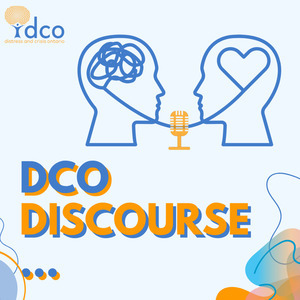Episode 26
Opiates Addiction and Harm Reduction Treatment
June 5th, 2019
18 mins 46 secs
Season 1
Your Hosts
Tags
About this Episode
For centuries, opiates have been used both recreationally and medicinally. While recreational use is now outlawed in most countries, their medical use as a painkiller is widespread. Opiate addiction and / or dependency, an ever increasing worldwide health problem, is greatly impacting lives. There are economic, personal and public health consequences to drug addiction that transcend gender, socio-economic status, race, and age. A concern over the use of ‘street drugs’ and a dependency to legally prescribed narcotic/opiate based pain relievers which is at an all-time high, are issues that merit attention. Opiate addiction destroys a person's sense of self. It causes decay, both mentally and physically, bringing on depression, anger and despair. Some live with addiction privately. For others, addiction can devastate home life, terminate careers, and threaten health, safety and neighborhoods. Addiction is about denial, isolation, neglected families, abandoned friendships, betrayal, fear and broken promises. Dennis Long, Executive Director of Breakaway Addiction Services in Toronto, provides a basic understanding of Opiates and the way in which narcotics can and do affect the lives of people. Dennis explains how harm reduction is used as part of a treatment plan that helps people manage their addiction and assists them to function within society. Distress and crisis line call responders can gain a valuable insight into the effects of drugs and an understanding of the importance of getting assistance with this problem. Questions for Further Consideration: Are you aware of any biases you may have or stigma you associate with drug addiction? What do you need to understand about drug addiction? Misconceptions, stigma and ignorance about those who suffer from addiction are widespread. There are prejudices that lead us to view the behaviours of substance users and abusers as moral and lifestyle choices. Addiction is a chronic relapsing disease. It is known that drugs, used repeatedly over time, change brain structure and function in fundamental and long-lasting ways. The consequence is virtually uncontrollable compulsive drug craving, seeking, and use that interferes with, if not destroys, an individual’s functioning in the family and in society. It is important to avoid labelling the individual as the problem, and focus on the behaviour that is the problem. What causes someone to become addicted to opioid drugs? No single factor can predict whether a person will become addicted to drugs. Opioid addiction is caused by a combination of physical and psychological factors. They include: access to opioid drugs, whether from licit or illicit sources development of physical tolerance to the drug use of increasing quantities of the drug compulsive use presence of withdrawal symptoms. Can a distress/crisis line provide help for someone who is trying to deal with such a serious addiction like one to narcotic drugs? When someone is trying to curb their habit or stop their addictive behaviour, sharing the feelings they are experiencing can be beneficial. Although they may be getting help for their addiction, they still may have urges to use. Calling the helpline, like calling a friend, is an avenue for getting support while they are going through treatment. This is an opportunity for them to share what they're going through and to not feel so alone. Sometimes, one’s problems don't seem quite as big and you don't feel as alone when you can talk to someone about your feelings. A call responder can offer information about community resources as well as a certain perspective when a caller is seeking support. Recovery from addiction could mean focussing on one day at a time. When someone is struggling with urges, it may be helpful to consider recovery in bite-sized chunks and avoid personal sabotage by thinking too far ahead. Glossary of Terms: Opiates: Opiates are a group of drugs that are used for treating pain. They are derived from opium which comes from the poppy plant. Opiates go by a variety of names including opiates, opioids, and narcotics. The term opiates is sometimes used for close relatives of opium such as codeine, morphine and heroin, while the term opioids is used for the entire class of drugs including synthetic opiates such as Oxycontin. The most commonly used term is opiates. Addiction: A primary, chronic neurobiologic disease, with genetic, psychosocial, and environmental factors influencing its development and manifestations. It is characterized by behaviours that include one or more of the following: impaired control over drug use, compulsive use, continued use despite harm, and craving. Tolerance: A state of adaptation in which exposure to a drug induces changes that result in a diminution of one or more of the drug's effects over time. Harm Reduction: Harm reduction is any program or policy designed to reduce drug-related harm without requiring the cessation of drug use.
